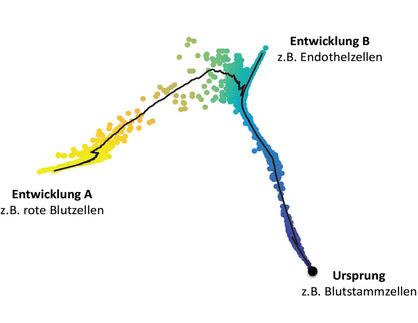SRI International Demonstrates Computational Method for Mapping and Predicting Human Metabolic Pathways and Proteins
Advertisement
SRI International, an independent nonprofit research and development organization, has performed a computational analysis of the human genome to predict metabolic pathways and to predict new gene functions within the human genome. Using SRI's PathoLogic(TM) software , the analysis assigned 622 human enzymes to roles in 135 predicted metabolic pathways. The pathways and the analysis results are available in the HumanCyc database.
The HumanCyc database is the seventeenth in SRI's growing collection of BioCyc pathway and genome databases. HumanCyc provides a genome-based view of human nutrition that could foster a better understanding of the links between genome, diet and health.
"The human genome is incredibly vast and complex; Pathways provide a framework for organizing the human genome so that scientists can more easily understand and manipulate it according to the molecular interactions among genes," said Peter Karp, Ph.D., director of SRI's Bioinformatics Research Group. "SRI's goal is to provide biologists with the 'power tools' they need to understand and analyze the genome in a much more useful way. By structuring information into pathways, we provide a unique genomic framework to more easily group and analyze our biochemical machinery. For example, one pathway in the HumanCyc database describes genes that work together to break down nicotine; another pathway contains the group of genes that make cholesterol."
Most read news
Organizations
Related link
Other news from the department research and development
These products might interest you

Image Integrity Checker by Cytiva
Image integrity checker software - authenticate your images for publication
Safeguard and verify your image data with our free software

Limsophy by AAC Infotray
Optimise your laboratory processes with Limsophy LIMS
Seamless integration and process optimisation in laboratory data management

ERP-Software GUS-OS Suite by GUS
Holistic ERP solution for companies in the process industry
Integrate all departments for seamless collaboration

Get the life science industry in your inbox
By submitting this form you agree that LUMITOS AG will send you the newsletter(s) selected above by email. Your data will not be passed on to third parties. Your data will be stored and processed in accordance with our data protection regulations. LUMITOS may contact you by email for the purpose of advertising or market and opinion surveys. You can revoke your consent at any time without giving reasons to LUMITOS AG, Ernst-Augustin-Str. 2, 12489 Berlin, Germany or by e-mail at revoke@lumitos.com with effect for the future. In addition, each email contains a link to unsubscribe from the corresponding newsletter.


























































